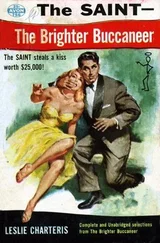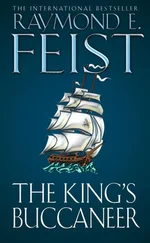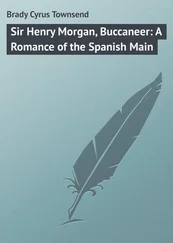Rolf Boldrewood - A Modern Buccaneer
Здесь есть возможность читать онлайн «Rolf Boldrewood - A Modern Buccaneer» — ознакомительный отрывок электронной книги совершенно бесплатно, а после прочтения отрывка купить полную версию. В некоторых случаях можно слушать аудио, скачать через торрент в формате fb2 и присутствует краткое содержание. ISBN: , Жанр: foreign_antique, foreign_prose, на английском языке. Описание произведения, (предисловие) а так же отзывы посетителей доступны на портале библиотеки ЛибКат.
- Название:A Modern Buccaneer
- Автор:
- Жанр:
- Год:неизвестен
- ISBN:http://www.gutenberg.org/ebooks/35431
- Рейтинг книги:3 / 5. Голосов: 1
-
Избранное:Добавить в избранное
- Отзывы:
-
Ваша оценка:
- 60
- 1
- 2
- 3
- 4
- 5
A Modern Buccaneer: краткое содержание, описание и аннотация
Предлагаем к чтению аннотацию, описание, краткое содержание или предисловие (зависит от того, что написал сам автор книги «A Modern Buccaneer»). Если вы не нашли необходимую информацию о книге — напишите в комментариях, мы постараемся отыскать её.
A Modern Buccaneer — читать онлайн ознакомительный отрывок
Ниже представлен текст книги, разбитый по страницам. Система сохранения места последней прочитанной страницы, позволяет с удобством читать онлайн бесплатно книгу «A Modern Buccaneer», без необходимости каждый раз заново искать на чём Вы остановились. Поставьте закладку, и сможете в любой момент перейти на страницу, на которой закончили чтение.
Интервал:
Закладка:
We entered his house unmolested, and I took an inventory of his goods. There was very little trade left, but the natives said he had a lot of money given him by the skipper of the Californian vessel. This we found in a large soup and bouilli tin in his chest. It amounted to nearly seven hundred dollars, mostly in U.S. half-dollar coins.
The natives begged the Captain not to close the station up; if Jim was going away, they wished some one in his place. He said he would consider their wish after he got on board; but they must first help him to raft off twenty casks of oil that were lying in Jim's oil-shed.
We got off to the boats at last. The old man still kept hold of my left hand. This, the Captain had told me, he had done to protect me if any fighting took place; that if fighting had resulted I would not have been killed, but would have been regarded as the old man's prize. The natives launched their canoes and followed the boats in swarms when we set sail for the brig. As soon as we got alongside, Hayston asked the second mate if the native he had spoken of had shown up.
"No," said Bill; "he's gone away to Samoa, so they say here."
Hayston seemed pleased at this news, telling me that this man was a special enemy of his, into whom he meant to put a bullet if he could drop across him. As he was gone away he was saved an unpleasant task. Jim was taken for'ard, and the carpenter was ordered to put him in irons; thereupon he sulkily explained that he didn't intend to turn rusty.
"All right, then, Jim," replied the Captain. "I'm glad we're going to be friends again. But you can go ashore at Makin and stay there."
He then called for a man among his crew to take Jim's place on shore. After some hesitation a sturdy Rotumah native said he didn't mind, if the Captain gave him a wife. He couldn't speak the language, and if he took a Taputana woman she might plot to kill him and he be none the wiser.
"Boys!" called out the Captain, "is any one of you willing to give Willie his wife? I'll make it up to him. Besides, there'll be plenty more going through the Marshall group."
No one appeared struck with the idea. So the Captain called Sunday aft, and held brief conversation with him, after which the boy went into the deckhouse and brought out his wife and N'jilong. The poor girl shed a few tears at first and clung to Sunday's neck, but he finally induced her to go with Willie. She had come aboard almost naked, but went away with a well-filled chest and any amount of finery.
She parted from her sister in an apathetic manner, but her tears began to flow afresh when Sunday turned coolly from her and pursued his duties on the deck. Savage though she might be, she felt the parting from the hardened young wretch whom she had come to look on as her partner. However she lost nothing by the change. Her new husband was a steady, good fellow who treated her kindly. Years afterwards I met them both on one of the Ellice Islands and received a warm welcome. Willie had legally married her in Fiji, and they seemed a most affectionate couple, with children in whom their chief pride in life was centred.
CHAPTER VI
CAPTAIN BEN PEESE
For the next few weeks we cruised about among the islands of the Kingsmill and Gilbert groups, collectively known as the Line Islands. The most southerly of them is Arurai or Hope Island, in the latitude 2.41 S., longitude 177 E. – the most northerly, Makin or Butaritu, in latitude 3.20, 45 N.
We did good business generally going through this group, and steady going trade it was, varied only by the mad drunken bouts and wild dances which took place when we were at anchor – these last beyond description.
Just then I was badly hurt fishing on shore one day. It was peculiarly a South Sea accident. I was standing on a jutting ledge of coral, holding my rod, when it suddenly broke off, allowing me to fall downwards on sharp edges, where I was terribly cut about the legs and body. The green or live coral has the property of making a festering wound whenever it pierces the true skin, and for weeks, with my unhealed wounds, I was nearly mad with pain. The Captain did all he could for me, having a netted hammock slung on deck, where I could see all that was going on. One day in a fit of pain I fell out and nearly cracked my skull. All the native girls on board were most kind and patient in nursing me. So the Captain said the least I could do was to marry one, if only out of gratitude and to brush away the flies.
Whatever some people might call these poor girls they had at least one virtue, which, like charity, covereth a multitude of sins. Pity for any one in bodily pain they possessed in the highest degree. Many an hour did they sit beside me, bathing my aching head with a sponge and salt water – this last the universal and infallible cure.
We called at Peru or Francis Island, where we obtained nine natives – five men and four young women. The islanders here are rude and insulting to all strangers not carrying arms, and almost as threatening as those of Taputana. I was, however, too ill to go on shore here.
After a two months' cruise through this group we bore away for Strong's Island, distant some five hundred miles. We had favourable winds, and the brig's speed was something wonderful. In thirty-eight hours we had covered a distance of four hundred and ninety miles, when the lofty hills of this gem of the North Pacific, covered with brightest verdure, gladdened our eyes after the long, low-lying chains of islets and atolls of the Marshall and Kingsmill groups.
The brave "north-east trade" that had borne us so gallantly along died away to a zephyr as we drew near the land, and saw once more the huge rollers thundering on the weather point of the island.
Calling first at Chabral harbour we did a little trading, and then sailed down the coast close to the shore – so deep runs the water – till we reached Utwé.
Here we found three American whalers put in for food and water. Hayston seemed anxious to get away, so, after exchanging courtesies with the skippers, we ran round to Coquille harbour, where we lay several days trading and painting ship. We cleared the harbour at daylight, with the sea as smooth as glass and wind so light that the Leonora could scarcely stem the strong easterly current. Still keeping a north-west course, we sailed away over the summer sea while scarce a ripple broke its glassy surface, until we sighted Pingelap or M'Askill's, a hundred and fifty miles from Strong's Island.
These were discovered by Captain Musgrave, of the American whaler Sugar Cane , in 1793. They are densely covered with cocoa-palms, and though wholly of coral formation, are a good height above sea-level.
The Captain had a trader here named Sam Biggs – a weak-kneed, gin-drinking cockney. How ever such a character could have found his way to these almost unknown islands passed my comprehension! We ran in close to the village – so near that, the wind being light, we nearly drifted onto the beach, and lowered the starboard quarter boat to tow out again.
Whilst waiting for the trader I had a good look at the village, which I was surprised to hear contained 500 inhabitants. As, however, these islands – there are three of them, Takai, Tugula, and Pingelap – are wondrous fertile, they support their populations easily.
Presently the trader came off in a canoe, and, shambling along the deck, went down below to give in his report. He said that things were very bad. A few months back the American missionary brig Morning Star had called and prevailed on the king to allow two teachers to be landed. After making presents to the chiefs and principal men, they had got their promise to accept Christianity and to send the white man Biggs about his business. They had also told the natives that Captain Hayston was coming with the intention of carrying them off in bondage to work on the plantations in Samoa. Also that Mr. Morland, the chief missionary, was now in Honolulu, begging for a man-of-war to come to Pingelap and fight Captain Hayston's ship with his big guns and sink her.
Читать дальшеИнтервал:
Закладка:
Похожие книги на «A Modern Buccaneer»
Представляем Вашему вниманию похожие книги на «A Modern Buccaneer» списком для выбора. Мы отобрали схожую по названию и смыслу литературу в надежде предоставить читателям больше вариантов отыскать новые, интересные, ещё непрочитанные произведения.
Обсуждение, отзывы о книге «A Modern Buccaneer» и просто собственные мнения читателей. Оставьте ваши комментарии, напишите, что Вы думаете о произведении, его смысле или главных героях. Укажите что конкретно понравилось, а что нет, и почему Вы так считаете.












